The nine best games I played at Tokyo Game Show 2024
From hack-and-slash to VR, there’s something for everyone
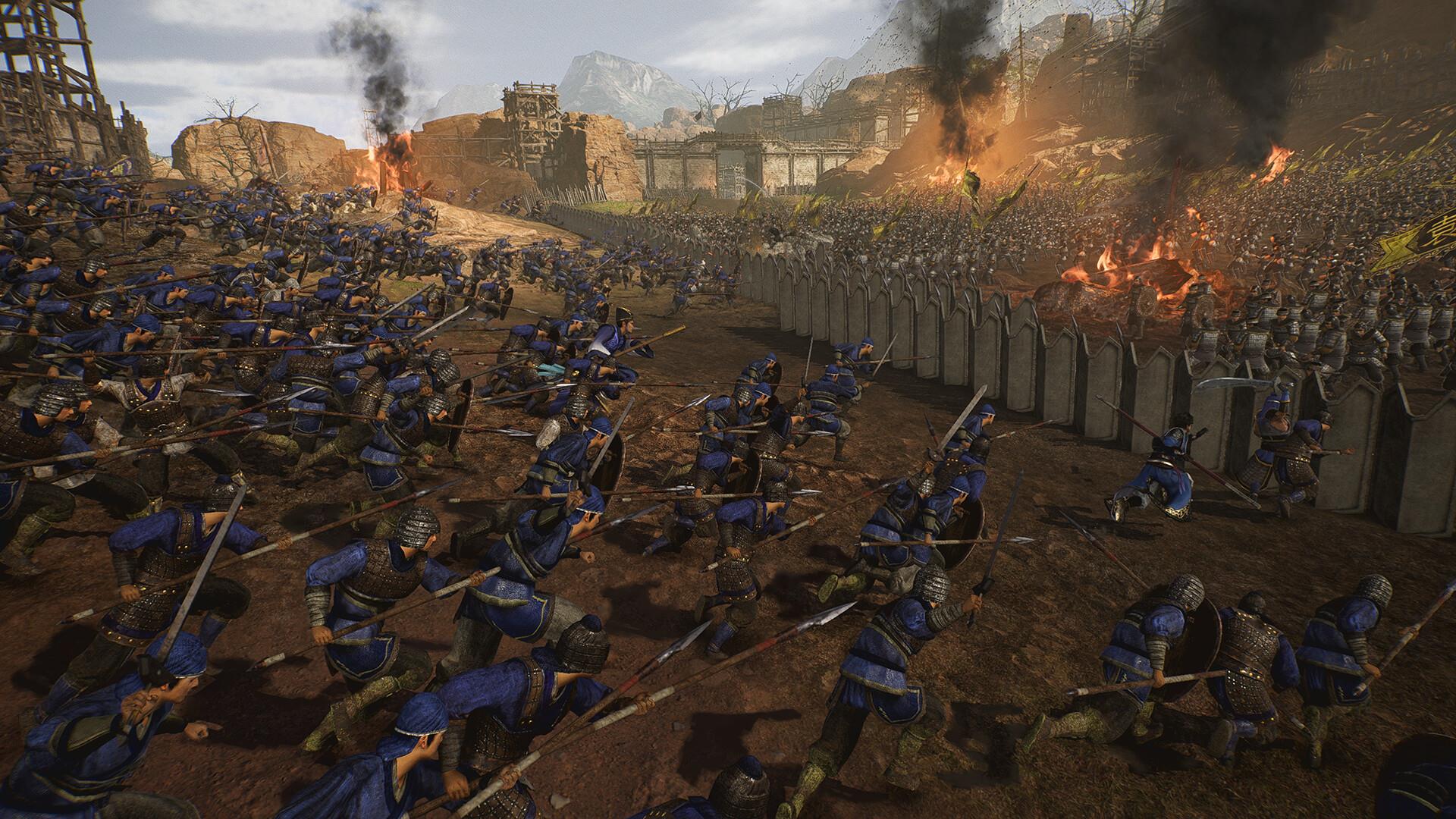
Tokyo Game Show is the biggest games industry event in Asia. Held annually at the Makuhari Messe in Chiba, Japan, you can find all sorts of offerings from various developers and publishers. Whether it’s an upcoming AAA extravaganza that everyone’s been talking about to an indie gem that’s worth looking into, there’s bound to be something for everyone.
From a hack-and-slash game where you take on the role of a lone warrior against a thousand foes and a brutal soulslike title where you seek revenge, to a tower defense game where you play as a bee, I managed to take a deep dive into all sorts of genres during the convention.
After exploring the vast exhibition halls and checking out numerous showcases during all four days of the Tokyo Game Show (September 26 to 29), I’ve come up with a list of titles that you should watch out for in the coming months. Here are the best games I played at the Tokyo Game Show 2024. Oh, and if you’re into haptic feedback peripherals, we’ve also got a feature where I checked out bHaptics’ tactical suits and devices.
Dynasty Warriors: Origins
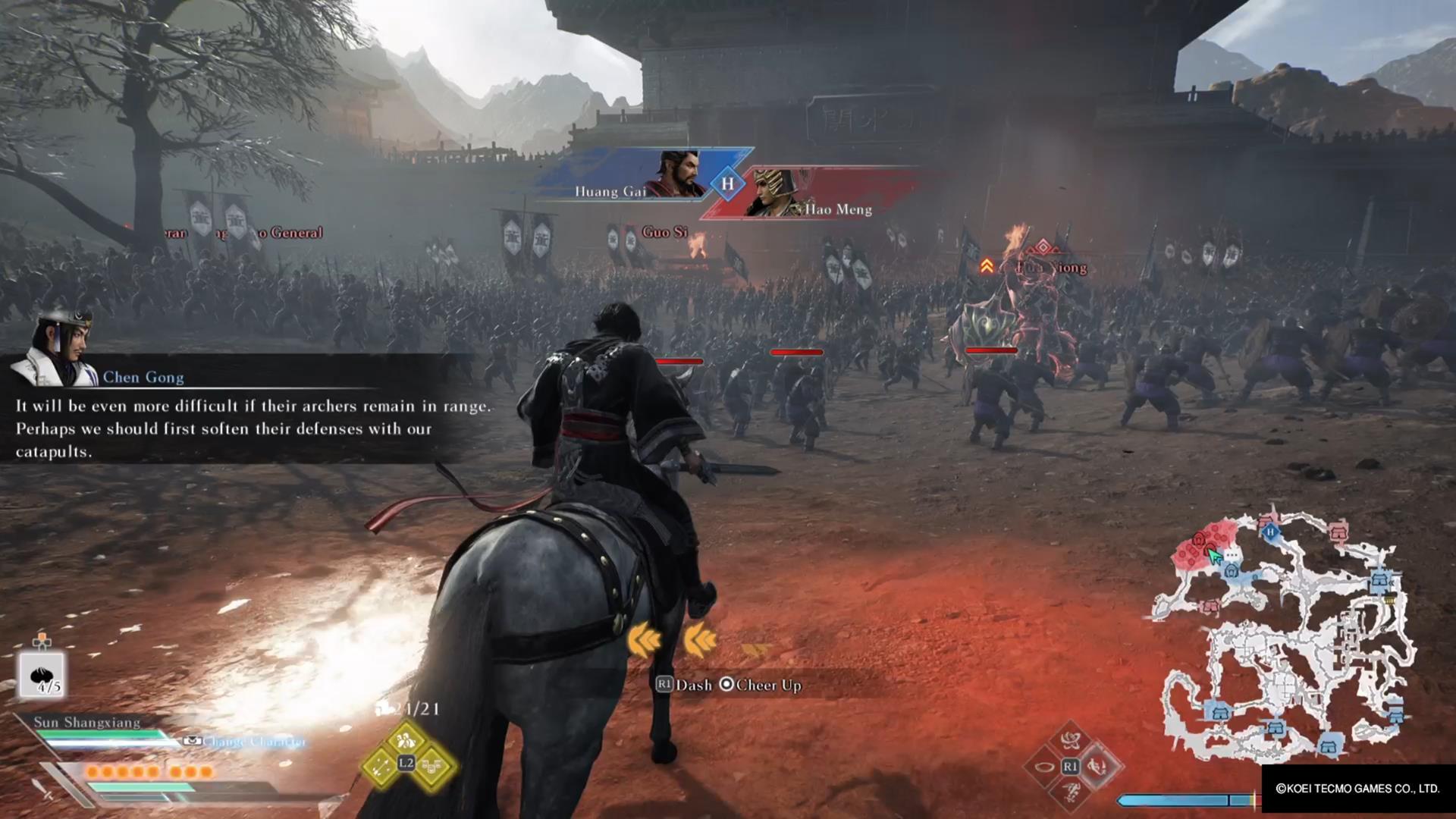
- Genre: Hack-and-slash
- Platform: PC, PlayStation 5, Xbox Series X|S
- Developer: Omega Force
- Publisher: Koei Tecmo
The Dynasty Warriors franchise, which is based on the Three Kingdoms era of Ancient China, incorporates one central theme: that of playing as a lone warrior and fighting against a thousand foes. Dynasty Warriors: Origins, the next entry in the series, has all the features that made me feel like a true hero of the Three Kingdoms.
In the Battle of Sishui Gate demo that I played at the Tokyo Game Show, I saw numerous troops mustering across vast swaths of land, from the dusty plains all the way to the foreboding walls of the fortress. I explored striking locales on foot and on horseback, taking out numerous soldiers along the way by using weapon strikes. I was also able to make use of four different ‘musou’ abilities, including an ultimate skill where my character violently spun around, sending dozens of enemies flying. Likewise, I could activate tactical maneuvers to have my soldiers whittle down the hostiles.
Eventually, I engaged an enemy general named Hua Xiong in a duel, complete with troops from other forces cheering us on. After this, I continued to charge the enemy army; even the mighty Lu Bu, known as the strongest warrior at the time, made a shocking appearance at the end of the bout. The pacing of the whole battle and various commands or actions, as well as the greatly increased enemy density, made for a truly awe-inspiring experience.
It’s worth noting that the Dynasty Warriors series has been around for nearly three decades. However, Tomohiko Sho, the head of Koei Tecmo’s Omega Force studio did manage to surprise me after saying that Origins will not only feature a “blank slate” of a character, but the campaign will only adapt the events up to the Battle of Chibi / Red Cliff. Given that the Battle of Chibi takes place at the midpoint of the campaign in previous iterations, this focus on a shorter time period might help Koei Tecmo pour all its resources into delivering fewer but larger battles that are akin to set-piece spectacles.
Get daily insight, inspiration and deals in your inbox
Sign up for breaking news, reviews, opinion, top tech deals, and more.
The First Berserker: Khazan
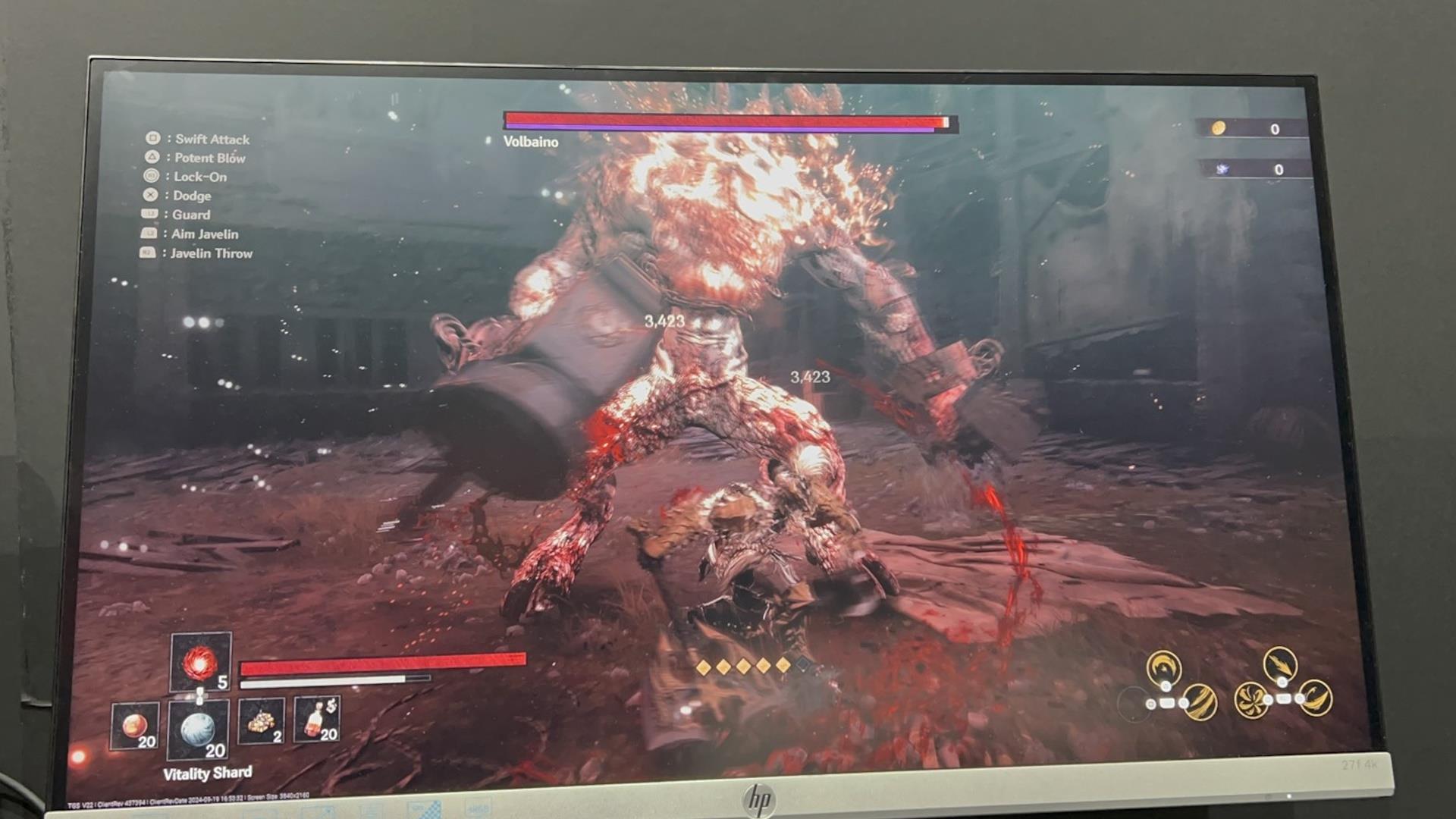
- Genre: Action RPG
- Platform: PC, PlayStation 5, PlayStation 4, Xbox Series X|S, Xbox One
- Developer: Neople
- Publisher: Nexon
The First Berserker: Khazan is about the titular character’s journey from a banished general to a godlike being. The demo I played showcased how much Khazan was inspired by soulslike contemporaries, from a waypoint that replenishes flasks and respawns foes, to ‘corpse runs’ I needed to undertake if I wanted to reacquire lost lacrima (i.e. souls/runes).
The action itself was fast and frenetic, as I had to expertly parry blows if I wanted to survive. One boss, Rangkus, even has a bombardier ability if I tried to engage him from a distance. Thankfully, my berserker lord character had dual-wield blades and thrown javelins to keep the pressure on, making for some truly exciting and challenging boss fights.
Sitting in a booth with Neople CEO Myeongjin Yun, I was told of how the studio’s previous releases were all free-to-play titles based on Dungeon & Fighter (DNF), their wildly successful game that has spawned numerous spinoffs. The First Berserker: Khazan, meanwhile, is yet another DNF spinoff, but it’s a break from tradition since it’s also the company’s first “package game”—i.e. single-player/paid title. Given that Khazan’s rise would eventually usher in the coming of the berserkers and slayers, which are also DNF classes, it’s definitely intriguing to see how the campaign will use the intricate themes and rich lore of the DNF universe.
Mecha Break
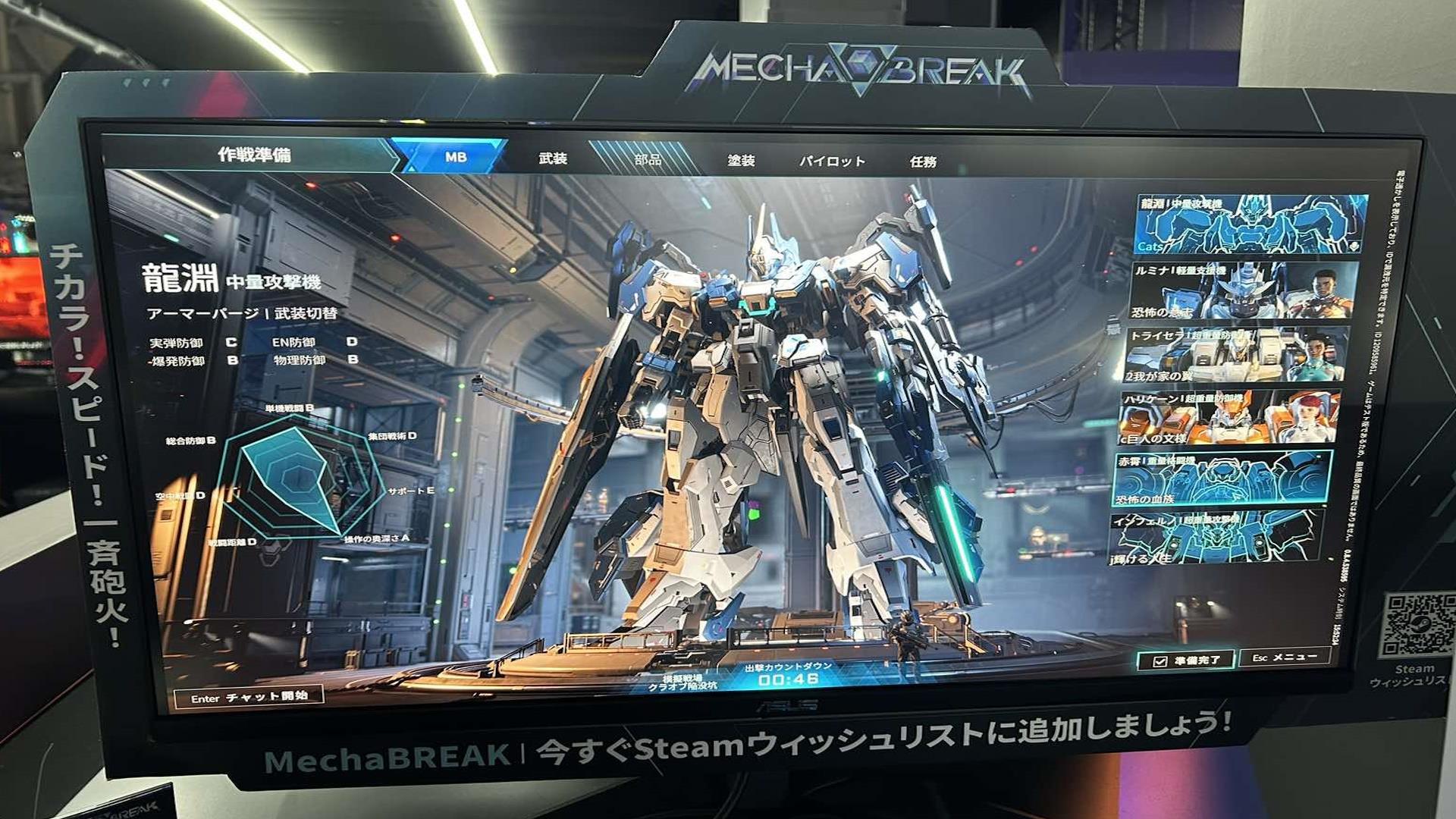
- Genre: Multiplayer shooter
- Platform: PC, PlayStation 5, Xbox Series X|S
- Developer: Amazing Seasun Games
- Publisher: Amazing Seasun Games
Some people love mechs, and others love competitive player-versus-player (PvP) action. But what if you can have both? That’s what Mecha Break, a game made by Chinese studio Amazing Seasun Games, strives to offer.
The Mecha Break demo sent me straight into a 6-versus-6 ‘control-based’ matchup where I piloted a mech armed with a devastating auto-cannon and railgun. I could even switch to a secondary weapon configuration, which allowed me to bring out an energy sword to engage foes in melee. The controls were fluid and the visuals were superb, leading to action that’s nothing short of exhilarating. I could fly through the air, hover and dash sideways, or beeline straight for an opponent that’s defending a control point. My teammates, meanwhile, zipped around me as they also picked off the remaining targets to continue increasing our total score.
I’ve been told that Mecha Break will have multiple game modes where you can form either a three-player team or a six-player team, or join an all-out 60-player battle royale. The game will also have a plethora of customization options to make your robot truly unique, though these are purely cosmetic.
Neverness to Everness
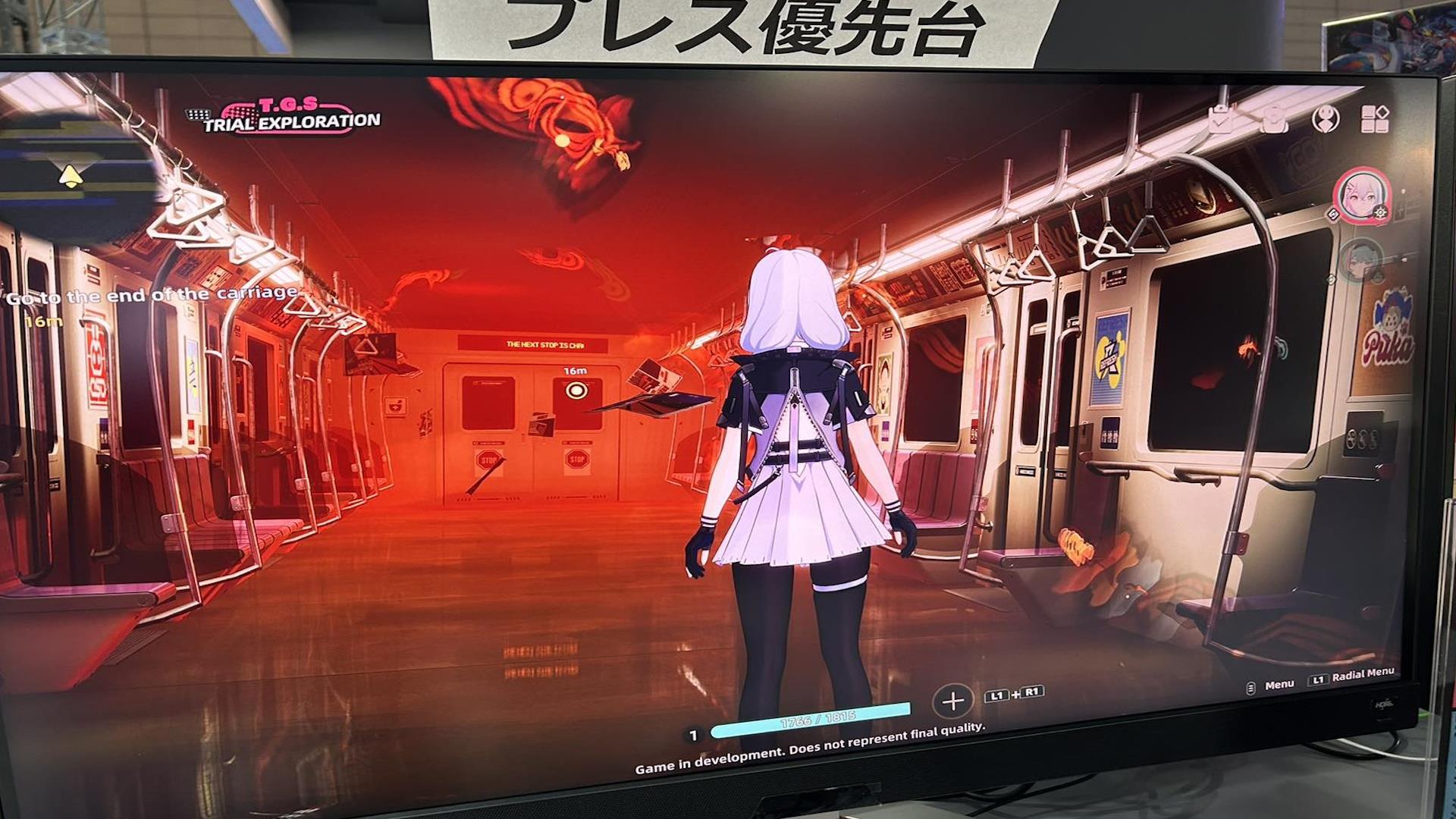
- Genre: Open-world RPG
- Platform: PC, PlayStation 5, Android, iOS
- Developer: Hotta Studio
- Publisher: Perfect World Games
Neverness to Everness, made by Hotta Studio, is an open-world title that primarily leans toward paranormal themes and a sci-fi urban setting. The first thing I noticed when I played the Neverness to Everness demo at the Tokyo Game Show was how quickly it reminded me of its fellow F2P contemporaries, such as Genshin Impact, Zenless Zone Zero, Wuthering Waves, and, of course, Hotta Studio’s own Tower of Fantasy, at least in terms of the colorful, anime-esque character designs.
What truly drew me in, however, was how often the environments shifted, part of the aftereffects of anomalies that occur in the human world. Nondescript hallways or train cars would suddenly have an eerie red glow or twisting passageways, while mysterious portals would lead me to new areas.
Enemy design was quite peculiar, too, such as a vending machine that turned into a monster or a trash can that suddenly grew long limbs. Moreover, this is actually the first F2P open-world RPG I’ve played where I got to drive around in a car; traversal and exploration were no longer limited to simply running around or teleporting to a fast travel point. Given that the metropolis of Hethereau where the game takes place is bound to be massive, and because Hotta Studio wants to create a living, breathing world, I’m genuinely excited to see the complete build.
Reanimal
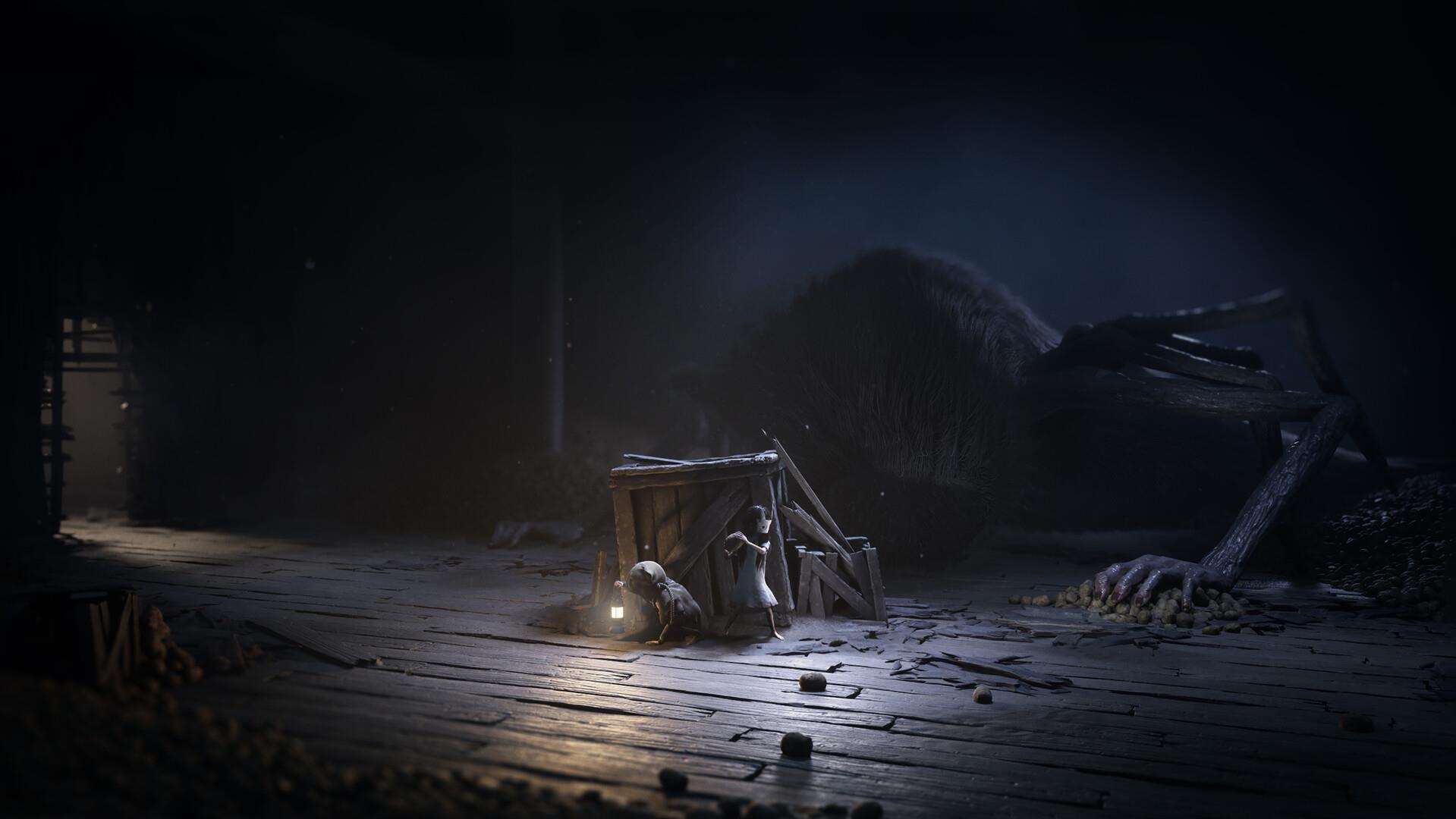
- Genre: Horror
- Platform: PC, PlayStation 5, Xbox Series X|S
- Developer: Tarsier Studios
- Publisher: THQ Nordic
Made by the team behind the first two Little Nightmares games, Reanimal is a co-op adventure platformer that features a brother and sister duo on a journey to rescue their lost friends. But this is far from a happy, easygoing romp. Indeed, Reanimal might be the most unsettling title that I played during the Tokyo Game Show.
Primarily, it’s because of the atmosphere and visuals. Reanimal uses dark and muted tones to convey a sense of dread and hopelessness, one where I sensed danger all around me. Secondly, it’s because my wife and I controlled the aforementioned sibling characters who are just children; they have no means of defending themselves. Instead, I had to rely on co-op mechanics, such as pulling each other up and above obstacles or hammering buttons to open doorways.
Enemies and other creatures were exceptionally unnerving, too. At the start, a bull rampaged in a hallway ahead of us, only for us to realize that it was actually friendly and it could be petted. Then, in the next area, a giant witch-like entity appeared, and I had to frantically make a mad dash through a narrow passageway and multiple flights of stairs just to escape dozens of ghastly “lost babies” that were eager to gobble us up. I experienced several tense and pulse-pounding moments, and I could only breathe a sigh of relief once the demo ended.
Ender Magnolia: Bloom in the Mist
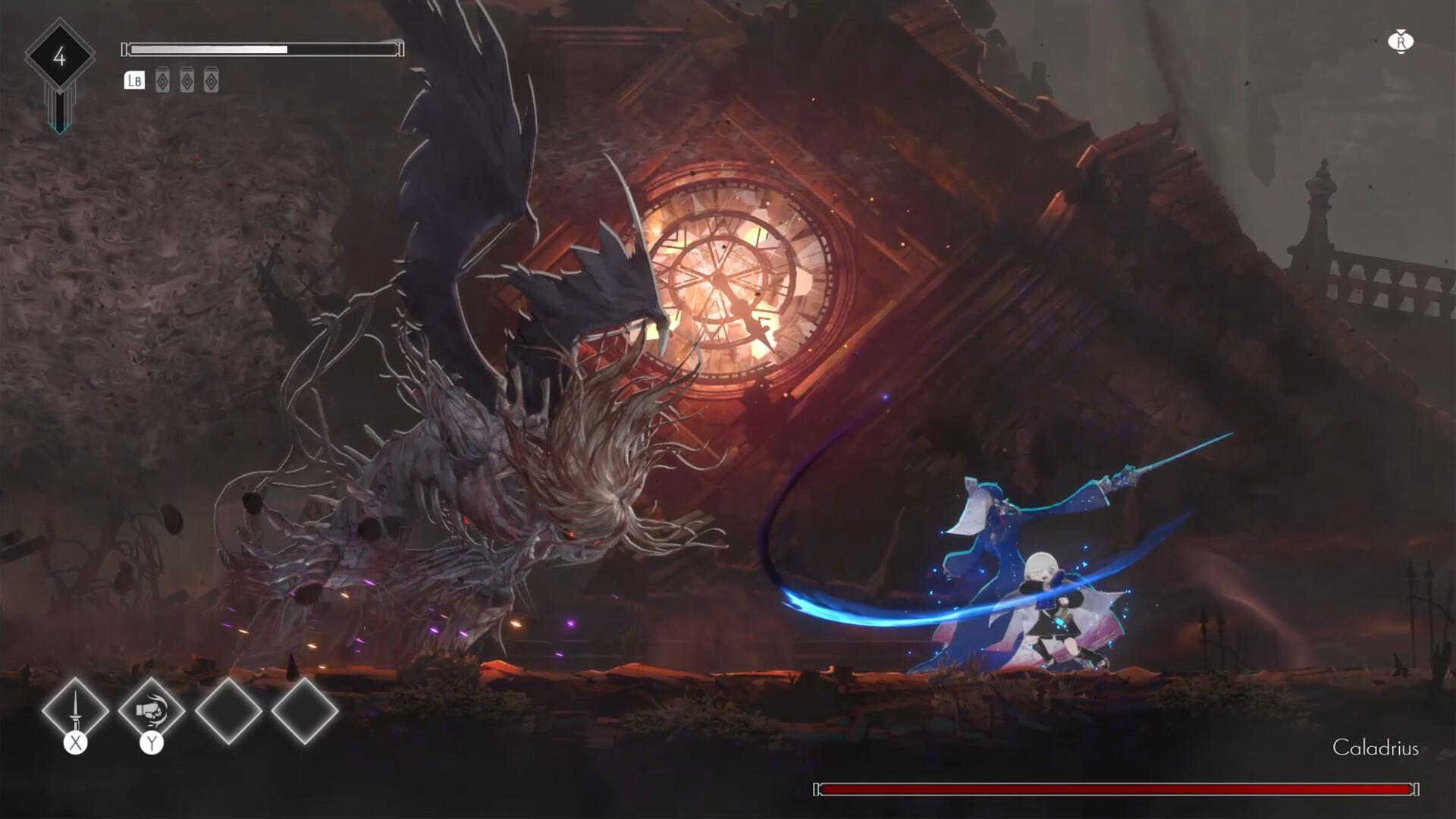
- Genre: Metroidvania
- Platform: PC, PlayStation 5, PlayStation 4, Xbox Series X|S, Xbox One, Nintendo Switch
- Developer: Adglobe and Live Wire
- Publisher: Binary Haze Interactive
Speaking of playing as vulnerable children, Ender Magnolia: Bloom in the Mist is a 2D Metroidvania that stars Lilac, a child who has no means of defending themselves on their own. However, since Lilac is an Attuner, you’re able to gain the aid of beings known as homunculi. In turn, they grant you abilities and skills, such as basic attacks, quick dashes, and explosive projectiles. I was told that up to 30 skills can be acquired throughout the course of the campaign.
Ender Magnolia’s level design is intricate, filled with numerous mysteries and challenging boss fights. As someone who had a blast reviewing and guiding 2021’s Ender Lilies: Quietus of the Knights, I’m quite excited to explore the immaculate yet foreboding world in this sequel. If its predecessor is any indication, then Ender Magnolia is bound to have a lot of secret areas and multiple endings for players to discover, too. Note that Ender Magnolia is currently available as an Early Access title on Steam.
Phantom Brave: The Lost Hero
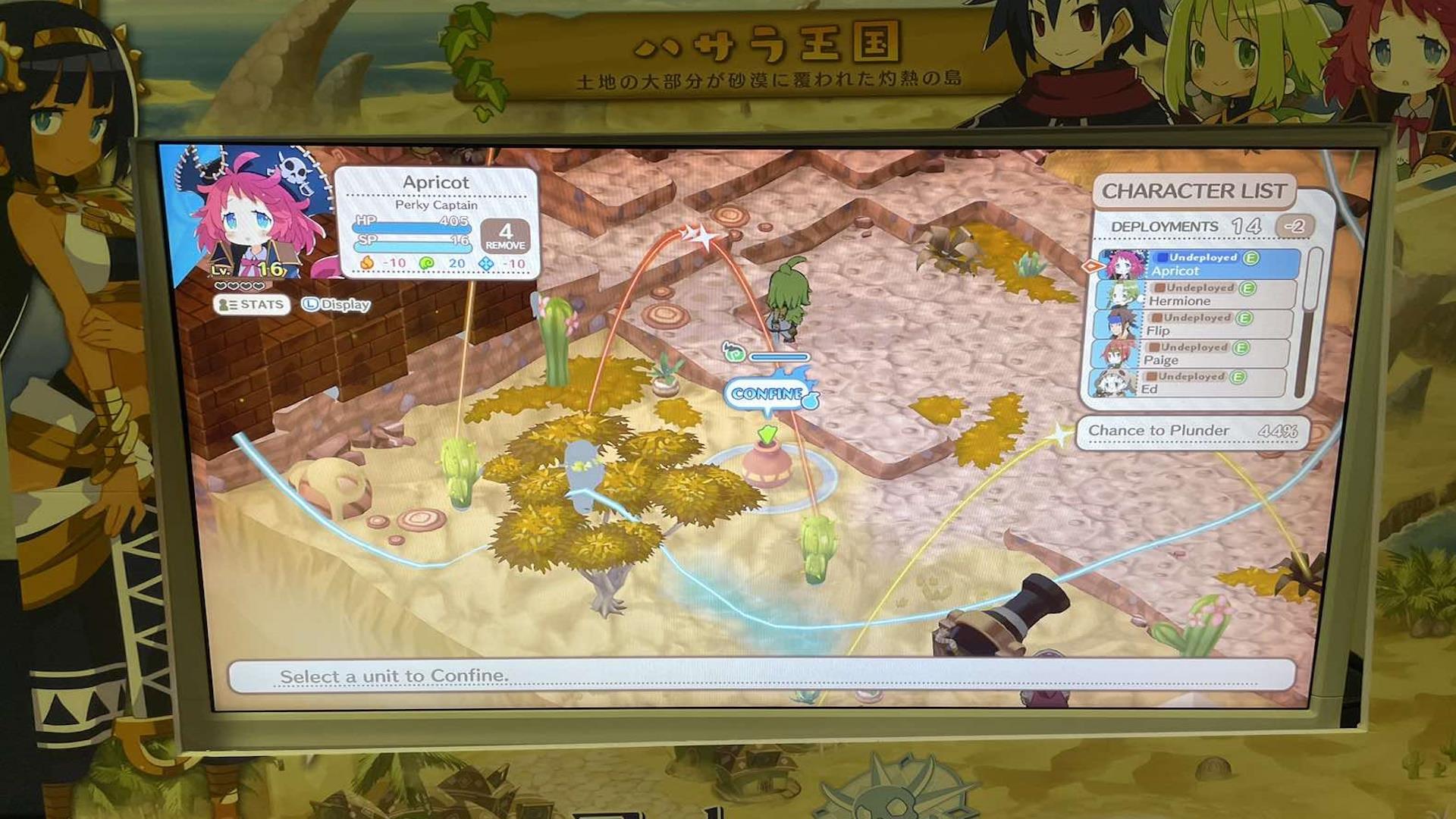
- Genre: Tactical RPG
- Platform: PC, PlayStation 5, PlayStation 4, Nintendo Switch
- Developer: Nippon Ichi Software
- Publisher: Nippon Ichi Software
Phantom Brave was originally released for the PlayStation 2 back in 2004. Since then, it has seen several remakes and ports for various systems. Now, nearly 20 years to the date of the original’s North American release, I had a chance to play the sequel, Phantom Brave: The Lost Hero.
This tactical RPG from the makers of the Disgaea series stars Marona, a girl who can commune with spirits. Marona’s powers allow spirits to possess objects so they can become her allies on the battlefield. The demo that I played only had a short bout, but it was enough to learn about the intricacies of the turn-based system. In it, I was able to summon around 10 allies, all of whom had unique abilities. Arrayed against me were half a dozen hostile soldiers, including warrior mages and archers.
One of the unique aspects of the turn-based combat system is that battlefields may have cursed objects that act as modifiers. In this particular instance, an urn actually made specific enemies immune to damage. The only way I could destroy it was to pick it up and throw it off the map. Team leader Yuya Hosono also told me that there are other effects to watch out for in other engagements, which would present plenty of ways to strategize. Likewise, Hosono and other developers made The Lost Hero with the idea of having Phantom Brave stand on its own as a flagship series for Nippon Ichi Software, alongside the ever-popular Disgaea franchise.
Honey Pot
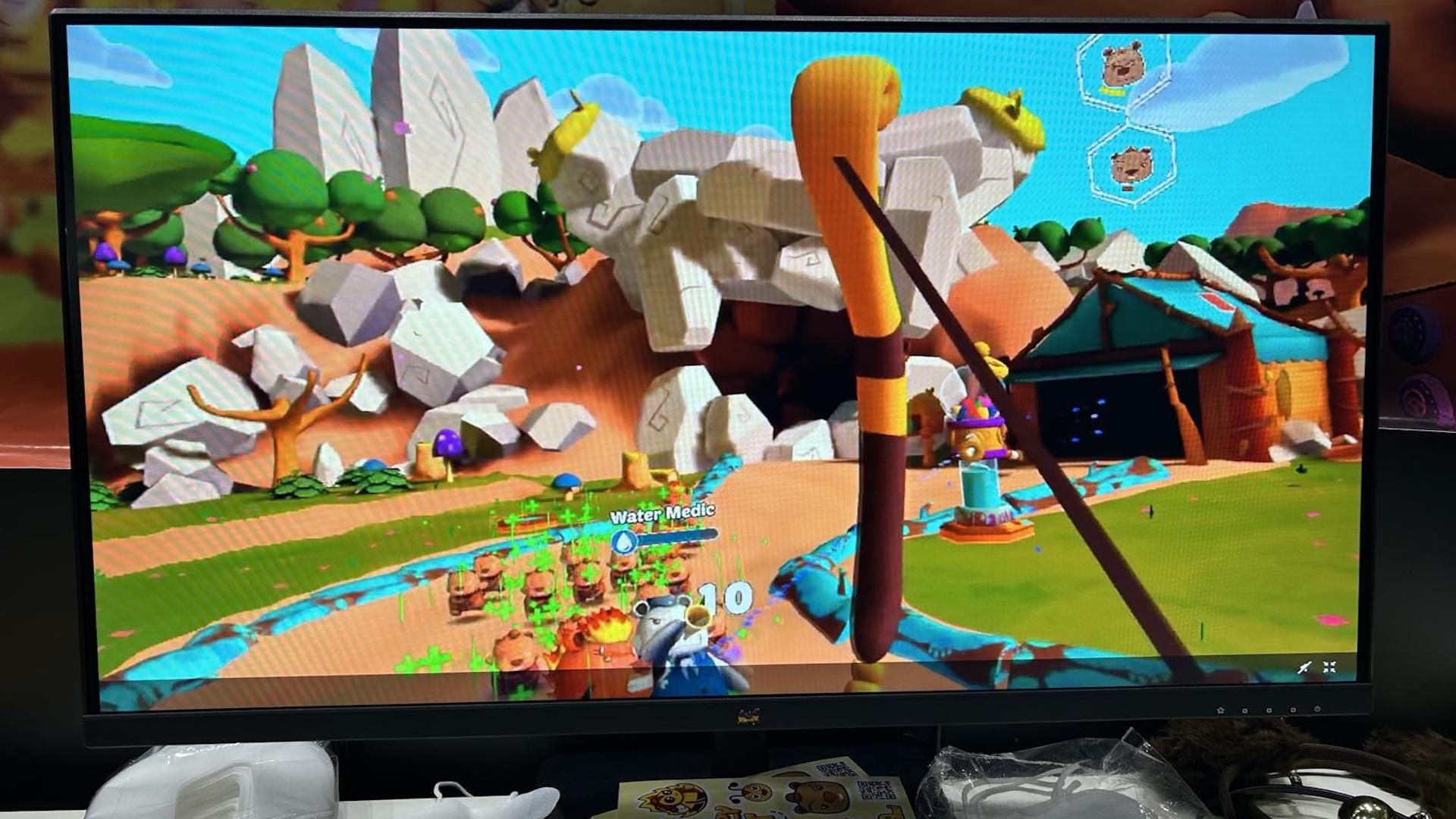
- Genre: Tower Defense
- Platform: Meta Quest 3
- Developer: VRMonkey
- Publisher: VRMonkey
Honey Pot is an upcoming VR game from Brazil-based studio VRMonkey. Studio co-founder Pedro Kayatt told me of how the team loved the frantic co-op gameplay in Overcooked, as well as the tactical depth of Plants vs. Zombies, that they wanted to combine both with their own take on the tower defense genre.
Soon after starting, I was pleasantly surprised to find that you actually play as a bee, and I had to fend off numerous waves of hungry bears. I had to flap my arms rigorously, which enabled my character to fly. Then, when I made a pulling motion akin to drawing a bowstring, my character brought out their bow to aim at the enemies below me. This also enabled me to hover in mid-air for longer periods, essentially giving me a means of shooting hostiles that moved across the plain.
Since Honey Pot is a tower defense game first and foremost, the gameplay loop also involves placing down turrets to eliminate hostiles as they advance. Kayatt mentioned that the team designed a whopping 14 towers with different elemental effects. This is definitely a treat for those who like seeing additional strategic layers, since the towers are meant to weaken or entrap your enemies while you snipe them from above. I can't wait to see the finished version so I can come up with sure-fire tactics.
Infinity Nikki
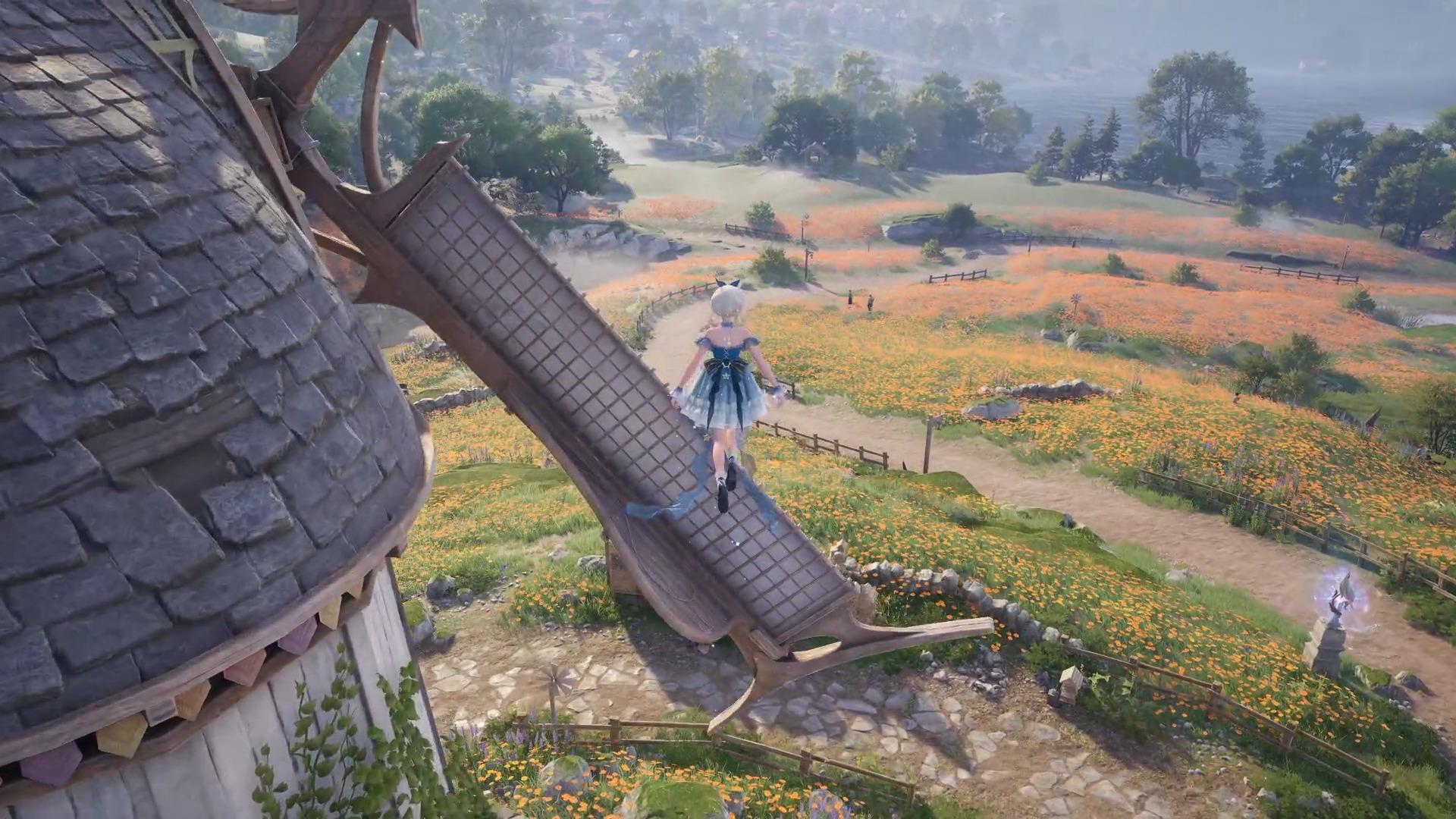
- Genre: Open-world RPG
- Platform: PC, PlayStation 5, iOS, and Android
- Developer: Infold Games
- Publisher: Papergames, Infold Games
The latest entry in the Nikki series redefines what it means to be a cozy, open-world RPG, since it stars the titular character whose clothes magically change. What made the whole experience memorable, however, were the massive explorable environments and the sheer number of activities I could tackle, including quests and collectibles hunting.
In the demo that I played, I went through a large town that’s full of NPCs, a lush forest that’s crawling with critters, a wasteland with an octopus blob boss, and a dungeon where I had to get across several train cars, all in the span of 30 minutes. Combat was also fairly straightforward based on what I’ve experienced, as Nikki only had magical projectiles to defend herself.
Infinity Nikki also makes it clear that fashion is a passion–you’re expected to engage with the dress-up mechanics throughout your journey. Some attires are used for basic mechanics, such as fishing, while others allow you to tame animals. Your clothes even have attributes that need to be upgraded if you want to win contests. The activities I completed also helped unlock new designs, which made for an engaging gameplay loop.
You might also like...
- Get ready for Halloween by playing Alien: Isolation and Doom Eternal for free with Amazon Prime Gaming
- Mario & Luigi: Brothership brings Nintendo’s smashing siblings closer than ever - but Luigi still plays second fiddle
- Potent poison, pals, and plants: three reasons why Diablo 4: Vessel of Hatred hooked me
Jason Rodriguez is a freelance writer from the Philippines. He started covering games in 2018. Since then, he's freelanced for a number of outlets, including GameSpot, Digital Trends, PCGamesN, Game Informer, and the Epic Games Store. Jason predominantly focuses on game guides and reviews, and he has over 6,000 published articles. If he's not busy with work, he and his wife are likely hunting for anime figures to add to their collection, or they're probably looking for a new cat to adopt.
